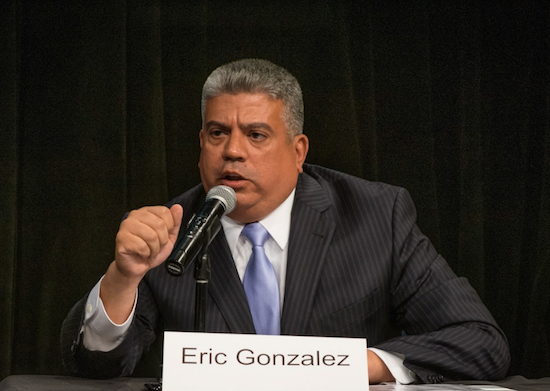Eric Gonzalez among prosecutors headed to Miami for mental health reform

Brooklyn District Attorney Eric Gonzalez is headed to Miami this weekend along with prosecutors from across the country for a symposium on confronting mental health issues within the criminal justice system.
The prosecutors will discuss best practices for responding to, and avoiding criminalizing people struggling with mental illness.
“I’m excited to travel to Miami this week to meet with fellow prosecutors and mental health professionals and to learn about better ways to handle and divert cases involving individuals with mental health issues,” Gonzalez wrote on Twitter prior to leaving Brooklyn.

Brooklyn Boro
View MoreNew York City’s most populous borough, Brooklyn, is home to nearly 2.6 million residents. If Brooklyn were an independent city it would be the fourth largest city in the United States. While Brooklyn has become the epitome of ‘cool and hip’ in recent years, for those that were born here, raised families here and improved communities over the years, Brooklyn has never been ‘uncool’.